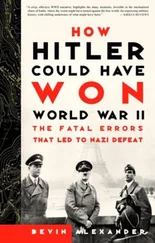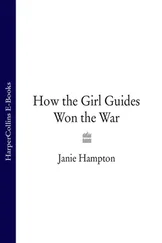Aside from his ideological rantings that made their pulses race so violently, the voters had little idea of what their Führer would do with the power they had bequeathed him. His first formal address to the nation, on 1 February 1933, left them little the wiser. Highlighting the ‘most profound distress’ of millions of German men and women, which, if it continued, would lead to ‘a catastrophe of unfathomable dimensions’, he declared that his ‘first and foremost duty’ was ‘to re-establish the unity of spirit and will of our Volk’. To this end, he promised to wage a ‘merciless war against spiritual, political and cultural nihilism’. There was, though, no mention either of the Jewish ‘bacillus’ or of Lebensraum.
Had the voters been present at a secret meeting of military leaders two days later, they would have been privy to a much clearer and uglier vision. Opposition to the Nazis, he advised the assembled generals, had to be ‘crushed’, while ‘extermination’ was the only means of containing Marxism. Democracy was a ‘cancer’ that had to be extirpated. The need for Lebensraum would probably require military conquest and Germanization, for which purpose the rapid build-up of Germany’s armed forces was an essential precondition. Some of his listeners enthused, others were nonplussed. None uttered a word of dissent. As Hitler’s eminent biographer Ian Kershaw has written, ‘However disdainful they were of the vulgar and loud-mouthed social upstart, the prospect he held out of restoring the power of the army as the basis for expansionism and German dominance’ accorded with the long-held objectives of Germany’s military elite. 25
Hitler turned next to the nation’s leading industrialists, inviting – instructing – them to join him on 20 February in a villa belonging to Hermann Goering, an ace fighter pilot in the First World War and the Führer’s most trusted accomplice. Goering had joined the Nazi Party in 1922 after hearing one of Hitler’s rants. Wounded when marching alongside the other leaders of the Beer Hall Putsch, he had been smuggled out of Munich to the Austrian city of Innsbruck. Treated with morphine to relieve the pain, he became addicted to the drug and, for a while, was confined to an asylum. On his return to Germany, he was elected to the Reichstag in the 1928 elections. By virtue of becoming the majority party in the July 1932 elections, the Nazis had the constitutional right to appoint the Reichstag’s president. Hitler chose Goering. When the Nazi leader became Chancellor, he appointed Goering as Prussia’s interior minister, which gave him control of the largest police force in Germany. By dint of amalgamating a plethora of units, he had soon established a new secret police organization, the Gestapo (control of which he would later pass on to Heinrich Himmler).
The industrialists were well aware that Goering, like Hitler, was not a man to be ignored with impunity. Once Hitler had finished telling them that the days of parliamentary democracy were numbered and the revolutionary left would be crushed by force if necessary, he left Goering’s villa and his number two picked up the theme. Demanding their financial support, he urged them to help fill the party’s severely depleted coffers in order to secure victory in the forthcoming election scheduled for 5 March 1933. This election, Goering advised them, ‘will surely be the last one for ten years, probably even for the next hundred years’. 26
For some of those present this was an irresistible incentive, notwithstanding the fact that it would involve collaborating with the forces of darkness. For those with an internationalist outlook, the prospect was far from enticing, but virtually impossible to evade. Seventeen leading companies duly contributed to an election fund of 3 million Reichsmarks, a huge boost to the Nazi Party’s campaign in the days leading up to the vote.
At the end of the month Hitler took one further step towards consolidating his power. On the pretext of suppressing a mythical communist insurrection, the non-existent authors of which he blamed for the fire that had gutted the Reichstag on 27 February, he had no difficulty in persuading Hindenburg – a deeply conservative figure – that civil liberties should be suspended forthwith. fn6 In an atmosphere polluted by intimidation and violence by Nazi vigilantes, more than 17 million voters cast their ballots for the National Socialists in the 5 March election – during which opposition parties were banned from campaigning. This gave Hitler a 43.9 per cent share of the popular vote. Armed with this rigged mandate, he went even further. Barring Communist Party deputies from attending the parliamentary session of 23 March (which was held in the Kroll Opera House following the Reichstag Fire), he steamrollered the appropriately named ‘Enabling Act’ onto the statute book. He thereby acquired the power to rule by decree and to use force as he saw fit to maintain public order. There would be no more elections in Germany until the end of the Second World War.
On 2 August the following year, Hindenburg died from lung cancer at the age of eighty-seven. There was an outpouring of national grief. At his state funeral, Hitler was careful to play a prominent role. By that time, however, he had already destroyed any remnants of German democracy. Following a shoo-in plebiscite, he abolished the role of president and, by assuming its powers, acquired direct control over every institution of the state, including the armed forces. The Führer and the Nazi zealots who clustered around him were now free to impose their fanatical will on a population of 67 million. And they knew what they wanted to do: establish Germany as the dominant power in Europe, regain the territories ‘stolen’ from them at Versailles, destroy communism, eliminate the Jewish ‘bacillus’ and create Lebensraum for the superior Aryan race in lands currently inhabited by an inferior Slavic people in eastern Europe and beyond. To achieve these goals, the German economy would have to be put on a war footing, and any treaties or undertakings that inhibited this would have to ignored or abrogated. The ways and the means, no less than the timetable by which all these objectives were to be realized, were as yet unclear, but that they were deeply embedded in the Nazi psyche was not in doubt. Few Germans resisted. To differing degrees the great majority from all sections of society were to be complicit, compliant or cowed into submission. The Third Reich had come of age.
2. Dictators and Democrats
On 25 March 1933, two days after Hitler’s Enabling Act was approved by the Reichstag, an unattributed article appeared in the Manchester Guardian . It was a dispatch from the Soviet Union from a British journalist, Malcolm Muggeridge, who had been posted to Moscow the previous year. He had arrived with his wife, Kitty, ‘resolved’ he wrote later ‘to go where I thought a new age was coming to pass’ and with the intention of surrendering his British passport for a Soviet one. His starry-eyed vision was far from unique. Among many left-wing British intellectuals to share his view were Kitty Muggeridge’s aunt, Beatrice Webb, who, with her husband, Sidney, was co-founder of the London School of Economics, the New Statesman and the Fabian Society, and that society’s most luminous supporter, the playwright George Bernard Shaw.
As a fervent admirer of the Soviet Union, Shaw had been invited to Moscow two years earlier for a nine-day ‘fact-finding’ mission. Lionized by the regime, he was driven around the capital in an open-topped limousine with his fellow travelling companions, Lord and Lady Astor. The family owned the vast Cliveden estate on the banks of the Thames. Nancy Astor was a renowned socialite who, in 1919, became the first woman to be elected as a Westminster MP. The aristocratic couple and the socialist playwright were bedazzled by what they were allowed to see of Moscow. Feted by revolutionary writers and artists, they were invited to meet Joseph Stalin at the Kremlin. Shaw was quite overcome. Flattered to be treated as though he were an old friend, he emerged from his three-hour encounter with the Soviet leader to declare on his departure for London, ‘Tomorrow I leave this land of hope and return to our Western countries – the countries of despair.’ 1
Читать дальше
![Джонатан Димблби Barbarossa: How Hitler Lost the War [calibre] обложка книги](/books/385421/dzhonatan-dimblbi-barbarossa-how-hitler-lost-the-w-cover.webp)



![Traudl Junge - Hitler's Last Secretary - A Firsthand Account of Life with Hitler [aka Until the Final Hour]](/books/416681/traudl-junge-hitler-s-last-secretary-a-firsthand-thumb.webp)







